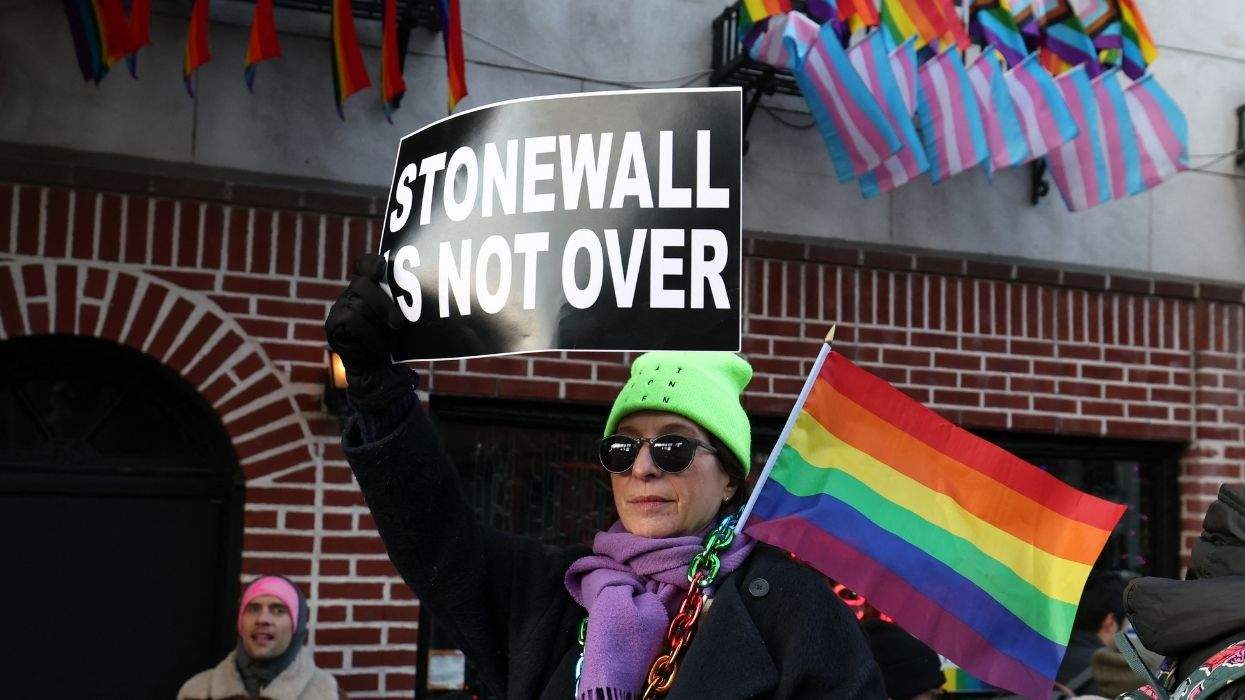The American Medical Association believes in equal protection under the law for all Americans, in health care, in the workplace and at home.
Without exception, we will oppose any type of discrimination based on an individual's sex, sexual orientation or gender identity, race, religion, ethnicity, age or disability. The AMA Code of Medical Ethics demands not only that physicians respect the law, but that they advocate to change laws that are contrary to the best interests of our patients.
With that obligation in mind, the AMA filed an amicus brief this summer with the U.S. Supreme Court, which is set to hear arguments in the matter of Harris Funeral Homes v. EEOC on October 8; today. The court's decision in this case will likely decide if federal civil rights law that bans workplace discrimination based on sex also protects sexual orientation and gender identity.
The law at the center of this case is Title VII of the Civil Rights Act of 1964. In addition to banning discrimination based on sex, Title VII also prohibits employers from considering race, color, religion, or national origin in any term, condition or privilege of employment.
The protections afforded under Title VII today are the cornerstone of equality and fairness in how people from all backgrounds in America live and work. And they are no less important to transgender individuals, those whose gender identity or expression differs from cultural expectations based on the sex they were assigned at birth.
The facts in the Harris case are not in dispute. Before the nation's highest court accepted this case, the Sixth U.S. Circuit Court of Appeals in Cincinnati ruled that Title VII protections did, in fact, apply in a case where a funeral home director, who had worked at the home for six years, was fired after writing a letter to the owner stating that she planned to transition from male to female.
The precise wording of Title VII forbids "sex" discrimination by employers. In recent years, several federal appeals court decisions have granted protection to LGBTQ workers from workplace discrimination in many parts of the country. This protection is not national in scope, however; currently, no federal law expressly forbids discrimination on the basis of sexual orientation or gender identity.
However, in 1989, the U.S. Supreme Court in Price Waterhouse v. Hopkins also decided that Title VII protections would encompass discrimination based on sex stereotypes. Judges in the Sixth Circuit Court of Appeals cited that case in their ruling in Harris v. EEOC when they held that Title VII requires that gender must be irrelevant in employment decisions. They wrote: "Gender (or sex) is not being treated as 'irrelevant to employment decisions' if an employee's attempt or desire to change his or her sex leads to an adverse employment decision."
In other words, the Sixth District ruled that gender identity discrimination is a type of sex discrimination banned by Title VII. At the same time, their ruling established that gender identity discrimination constitutes illegal gender stereotyping as defined in Price Waterhouse v. Hopkins.
In the U.S., approximately 1.4 million adults and an estimated 150,000 teenagers identify as transgender. These individuals frequently face discrimination and bias in everyday life, from employment and social services to health care. The AMA opposes any discrimination based on sex, sexual orientation or gender identity, and supports public and private health insurance coverage for treating the gender dysphoria these individuals may experience. Employment discrimination against transgender people frustrates the treatment of gender dysphoria by preventing transgender individuals from living openly in accordance with their true gender identity and impeding access to needed medical care.
Since Title VII became the law more than 50 years ago, our nation has made significant strides toward equal treatment under the law for all Americans, including women, people of color, and LGBTQ individuals. We still have a long way to go, but we must not reverse these gains and return to an era when some communities lived in fear of constant harassment and workplace discrimination.
As physicians, and as leaders in medicine, we must always be vigilant and protect our patients from discrimination, ensuring that medicine remains a safe and welcoming place for all.
Patrice A. Harris, M.D., M.A., a psychiatrist from Atlanta, is the 174th president of the American Medical Association.















Charlie Kirk DID say stoning gay people was the 'perfect law' — and these other heinous quotes
These are some of his worst comments about LGBTQ+ people made by Charlie Kirk.